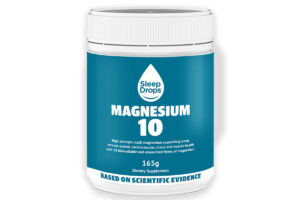A: Magnesium is a vital mineral that plays a crucial role in the healthy functioning of every cell of the body. To give you an idea about the variety of important roles it plays in our vitality, here are ten parts of the body that utilise magnesium significantly:
- Muscles: Magnesium is essential for muscle contraction and relaxation. It helps to regulate calcium levels within muscle cells, which is crucial for normal muscle function. Lack of magnesium can lead to cramping or muscle weakness. Muscles like to use magnesium citrate and magnesium chloride.
- Bones: Magnesium is a key component of the bone matrix and is important for bone health and density. It works with calcium and vitamin D to help keep bones strong. Most people get enough calcium from their diet but not enough magnesium. We need a ratio of calcium 2:1 magnesium.
- Heart: Magnesium is important for maintaining a healthy heart rhythm. It helps to regulate heartbeats and is used to treat certain conditions related to heart rhythm. The heart is a muscle after all. The form of magnesium used by the heart is called Magnesium Orotate.
- Nervous System: Magnesium plays a role in the functioning of the nervous system by influencing neurotransmitter release, which affects nerve signal transmission. The form of magnesium used by the nervous system is called Magnesium Phosphate.
- Brain: Magnesium is involved in brain function, sleep, and mood regulation. It has been shown to have a calming effect and is being studied for its role in combating depression, insomnia, and anxiety. Magnesium Threonate is considered superior because it crosses the blood-brain barrier.
- Digestive System: Magnesium helps to regulate muscle contractions in the gastrointestinal tract, which aids in digestion. It also has a role in the production of energy from food. Magnesium citrate has what is known as high bioavailability which means it can be absorbed through the gut lining. It’s also helpful in softening stools.
- Immune System: Magnesium supports the immune system. It plays a role in the inflammatory response and helps in the production and function of immune cells. Studies show magnesium glycinate plays a role in immune regulation.
Blood Vessels: Magnesium helps to relax blood vessels, which can lower blood pressure and - Improve blood flow. This is important for preventing vascular diseases. Again orotic acid from magnesium orotate and glycinate are helpful here.
- Cells: Magnesium is crucial for the creation of ATP (adenosine triphosphate), the main source of energy in cells. It also helps in the synthesis of RNA and DNA. Magnesium aspartate is useful for the conversion of glucose, fatty acids and amino acids into chemical energy.
- Kidneys: The kidneys regulate magnesium levels in the body. Magnesium plays a role in the function of the kidneys by influencing electrolyte balance and helping to prevent kidney stones.
Our ancestors used to successfully consume 400mg of magnesium in their everyday diet, unfortunately the modern diet only provides roughly 200mg or half of what we need for optimal health. A good well thought out multi magnesium supplement needs to provide a smorgasbord of magnesium to the body so that it may utilise the various forms and support great health in all the parts of our body.
Please visit the www.sleepdrops.co.nz shop to view our magnesium supplements in our brand new “Magnesium 10” offering your body 10 scientifically researched and bioavailable forms of magnesium. This is by far the most comprehensive magnesium supplement on the market.



